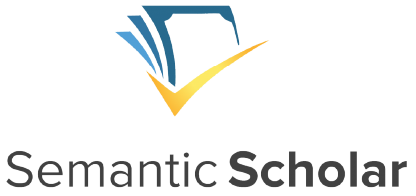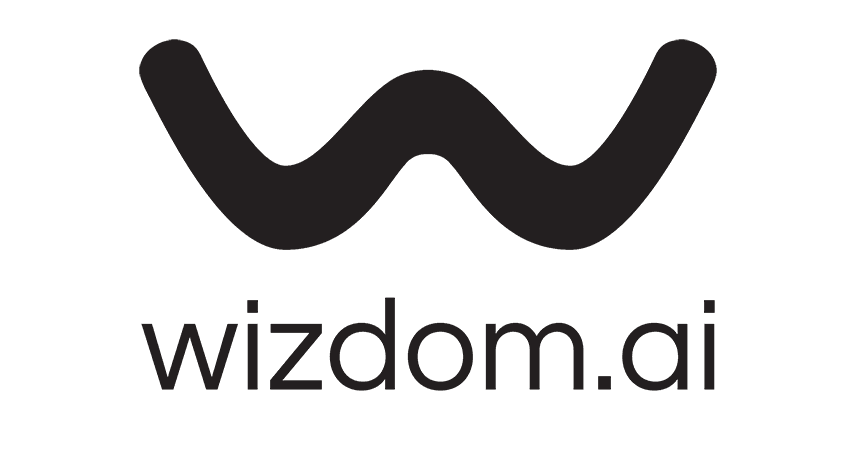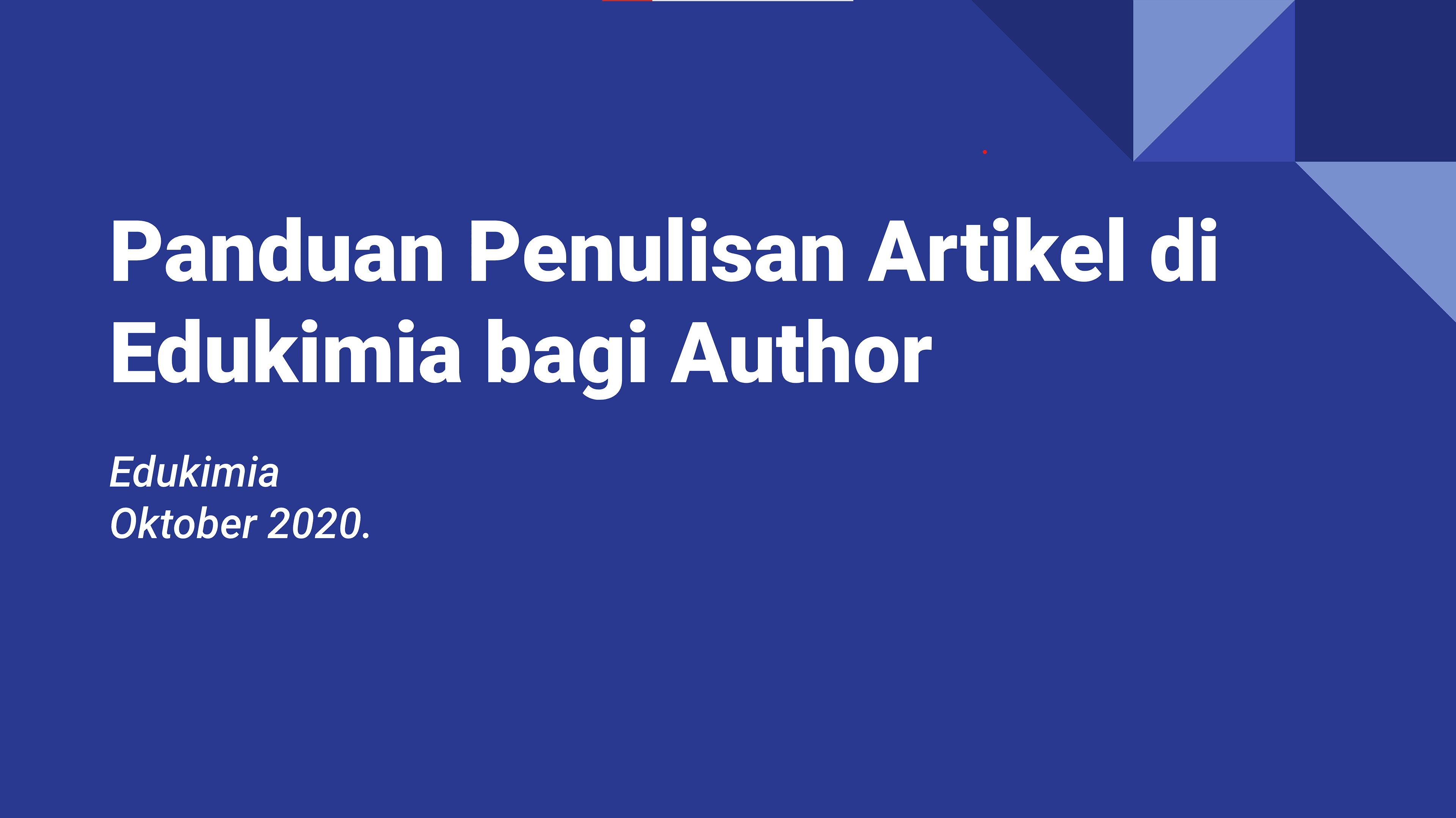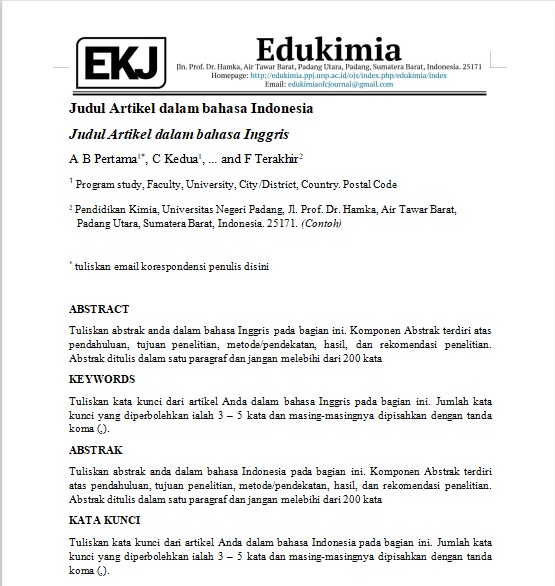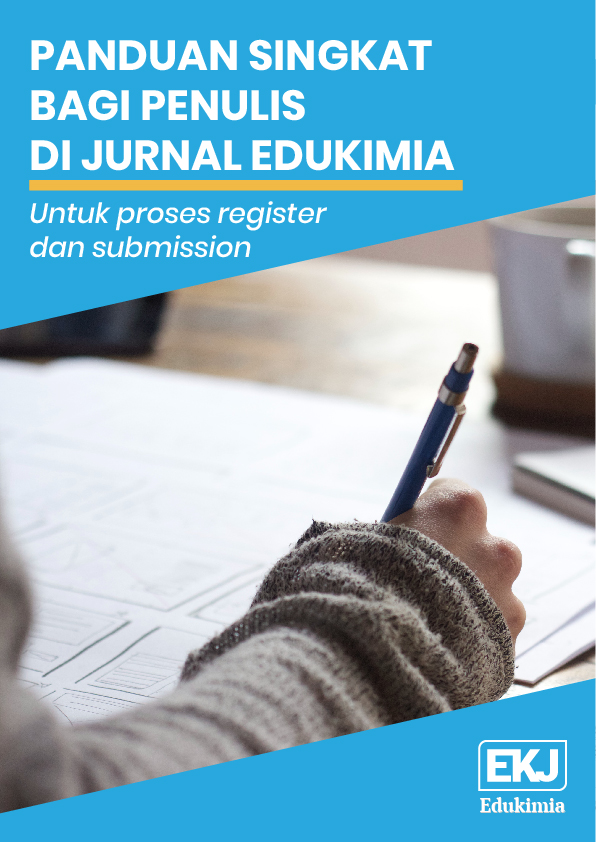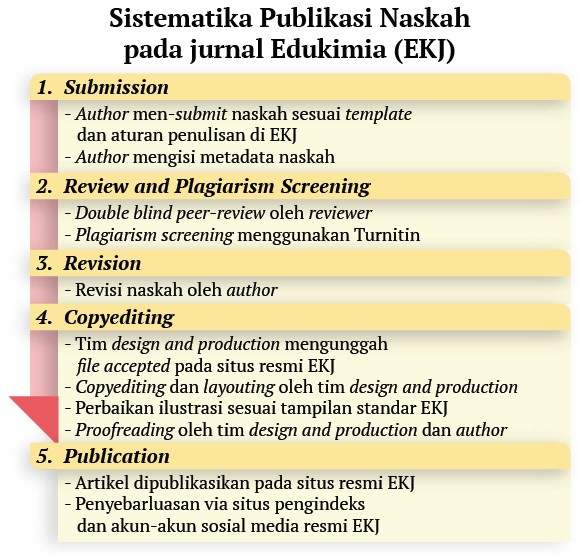Design of Chemical Literacy Assessment for Thermochemistry Topic for 11th Grade Senior High School
Article Metrics
The abstract has been viewed for 632 times.The full pdf article has been downloaded for 334 times.
Abstract
Keywords
Full Text:
EKJ 1 (4) - 2019 - Afifah (Bahasa Indonesia)References
Permendikbud RI No. 23 Tahun 2016 Tentang Standar Penilaian Pendidikan Dasar dan Menengah. Jakarta
Shwart Y., Ben-Zvi R. and Hofstein A. 2006a. Chemical literacy: what it means to scientists and school teachers? Journal of Chemical Education, 83, 1557-1561
BSNP, 2006. Permendiknas RI No. 22 tahun 2006 tentang Standar Isi untuk Satuan Pendidikan Dasar dan Menengah. Jakarta.
Prastiwi, Meidiana Nur Budi, dkk. 2017. Studi Kemampuan Literasi Kimia Peserta Didik pada Materi Elektrokimia. Pendidikan Kimia. Universitas Negeri Yogyakarta.
Rahayu, Sri. 2017. Mengoptimalkan Aspek Literasi Dalam Pembelajaran Kimia Abad 21. Jurusan Kimia FMIPA UNM
Ratcliffe, M. and Millar, R. 2009. Teaching for understanding of science in context: evidence from the pilot trials of the Twenty First Century Science courses. Journal of Research in Science Teaching, 46(8), 945-95
Windyariani, S. 2017. Pengembangan Model Assesmen Literasi Sains Berbasis Konteks Bagi Siswa Sekolah Dasar. Seminar Kedua Pendidikan Berkemajuan dan Menggembirakan. ISBN: 978-602-361-102-7.Universitas Muhamadiyah Sukabumi
Duit, Reinders. dkk. 2012. The Model of Educational Reconstruction-A Framework for Improving Teaching and Learning Sains.
Aiken, L. R. (1985). Three Coefficients for Analyzing the Reliability and Validity of Ratings. Educational and Psychological Measurement, 45, 131-142
Brady, James E. 2011. Kimia Universitas Asas & Struktur, Jilid 1. Tangerang: Binarupa Aksara
Yusmaita, Eka. 2017. Perancangan Assesmen Literasi Kimia dengan menggunakan Model of Educational Rekonstruksion (MER) pada tema Air Sebagai Pelarut Universal. JEP Volume 1 Nomor 2, November 2017 e-ISSN 2579-860X
Latisma, 2011. Evaluasi Pendidikan. Padang: UNP PRESS
Susetyo, B. 2015. Prosedur dan Penyusunan Analisis Tes. Bandung : PT. Refika Aditama
Refbacks
- There are currently no refbacks.

.jpg)


